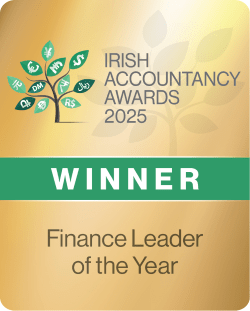
Small business owners have to keep their overhead expenses low, especially during tough times. Small business accounting services aren’t cheap, and you may ask yourself: is it worth the expense? The answer is that it depends on what you are getting in exchange for that monthly fee.
Your accountant’s services should go beyond basic bookkeeping and extend into expert advice, more deductions on your tax returns, better credit control and help to keep your business expenses down and your profits up.
A qualified accountant can be a valuable resource as your business grows, but only if your accountant offers the right support and advice at the right price. Small business accounting costs may seem high, but hiring the right service can save money in the long term. In this article, we’ll look at the hallmarks of a good accountant, what the average accountant costs, and what excellent service should look like.
What Do Various Accounting Services Cost?

If you had to Google “how much does an accountant cost”, you’ll probably derive as many answers as there are articles about the topic. Small business accounting fees may vary between firms and providers. Hiring an accountant in-house to work for you permanently is the most expensive option while paying an accounting business or freelancer to provide a standard accounting package is the cheapest.
Generally speaking, the smaller your business the less your accounting fees will be due to the risk to the accountant and the complexity of the services offered. If you are a start-up or a small business turning over less than €50,000 per annum your accounting needs will be compliance focused on your basic financial needs, including your annual accounts, bookkeeping, corporation tax returns, your personal accounting needs, your monthly and annual payroll processing and payroll returns, social insurance contributions, VAT returns.
These packages can sell for anywhere from €95 to €250 per month depending on the complexity of your business or services required.
Even if you are self-employed, have your own accounting software package and are reasonably well-versed in keeping your small business accounts in order, you may want to contact a professional accountant to help you with your annual income tax payments.
Many accountants will charge a once-off fee to complete your Form 11 self-assessment tax return (€250-€350) to assist you. They’ll be able to provide some advice and insight into tax rules and reduce your tax bill enough to cover their accountancy fees.
Alternatively, you can mix-and-match services (either paying fixed fees or hourly rates) for individual accounting services. Most accountants charge between €25-35 per hour for basic bookkeeping services, while tax planning and consulting with a financial expert can cost upwards of €120-€150 per hour.
Accounting Costs According to Business Size

Accounting fees are largely determined by the complexity of your business structure and your business size. Here’s what you can expect to pay:
Small business owners and sole traders
If you’re a new business owner with no staff and expect sales of less than €50k per annum, you can automate your bookkeeping through accounting software (Xero, QuickBooks). Many accounting software companies offer bespoke packages that sell the tools you need to run your entire accounting system, along with unlimited support, for a fixed monthly fee of around €40 a month. If your small business accounting is in order and you are tax compliant, you might only need an accountant to review your records periodically and at the year-end.
Remember a services business must register for vat with annual sales in excess of €37,500 per annum, a product business with annual sales in excess of €75,000 per annum. Even if you handle your own bookkeeping, it would be advisable to engage a qualified accountant to review the vat workings periodically.
Limited companies with €50k – €250k in turnover per annum or less
If your limited company is growing, and you are obliged to register for Vat with limited staff and a very basic accounting program, you should expect business accounting fees of around €195 per month, covering your corporation tax returns, confirmation statements, payroll processing, vat review and submission and support with your annual personal tax return.
If your business is more established and earns around €250k per year, with a handful of staff members and VAT registration, this fee will go up to €360 per month to cover your essential tax and bookkeeping needs. This should also cover support with payroll issues, and quarterly reporting.
Limited companies with €1 million in turnover per annum
If you have higher turnover and more staff, you need expert advice and support. Your accounting cost should cover support with tax, cash flow management, and even assistance with securing funding. A monthly fee of around €600 should help you with Revenue Commissioner filing, access to bookkeeping software, weekly payroll processing and wage slips, cash flow forecasts and monthly management reports. Your accountant should be ready and willing to discuss and review your financial reports on a monthly or quarterly basis.
Limited companies with €5 million in turnover per annum
If your limited company has expanded and is earning €5 million in turnover every year, you probably have more complex business records and more staff on hand. Cash flow becomes harder to manage, and you need to keep your wits about you when it comes to managing accounts receivable, wages and taxes.
At this stage, you either need to consider hiring full-time or part-time help or paying for a more personal service from your accounting firm. Many businesses at this stage hire full-time bookkeepers, credit controllers, and in-house accountants tasked with processing payroll, handling invoices and ensuring that customers pay their accounts, but a good cloud accounting software package should be sufficient if you supplement it with an accounting service. Expect to pay accountant fees upwards of €1,100, which is still significantly lower than the cost of an in-house account with a salary of €45k per year.
As a rule of thumb, you should look for an accounting service that can support you at every level, even if you are handling your own accounts.
Benchmarking Accounting Costs

If you are a small business, you may wonder if you are paying too much for your accountant from time to time. While we’ve provided a rough guide to accounting fees, service can vary dramatically between providers. See below for a general outline you can use to budget for accounting services.
As a rule of thumb, small business accounting experts say that you shouldn’t pay more than 4% of your turnover in accounting costs – no matter which accounting tasks or services you are getting in exchange for those fees. That amount should cover all accounting costs, including software, salaries, hardware and office space.
If you are a small business owner generating €500,000 in income every year, you should set an accounting budget of €15,000 per year. By this estimate, you won’t be able to hire a full-time accountant to manage your annual accounts, but you can easily hire a comprehensive outsourced team.
As mentioned in the previous section, it’s best not to consider an in-house team until you hit €5 million in turnover. If you’ve done the math and found that your accounting cost is far higher than 4%, it’s time to re-evaluate your accounting systems. You could outsource your accounting or bookkeeping, switch to a different suite of software, or use a part-time accountant instead of a full-time provider.
Saving Money Shouldn’t Come At a Price

Small business accounting costs may feel like a huge expense, but it’s hard to put a price on the guidance and support a good accountant can offer.
Fortunately, the advantages of cloud accounting software have enabled small businesses owners to easily outsource their finance function, access expertise without needing to hire a full-time accountant whilst retaining visibility and control on all things finance in their business.
The right provider will use a mix of technology and people to support your business and handle all of the necessary accounting tasks without breaking the bank.
Feel free to reach out to here more about our services packages here












